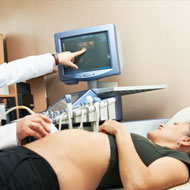- Postpartum Backache
- Postpartum Bloodshot Eyes
- Postpartum Bowel Movements
- Postpartum Breast Engorgement
- Postpartum Breasts
- Postpartum Exhaustion
- Postpartum Fecal Incontinence
- Postpartum Hair loss
- Postpartum Incision Pain
- Postpartum Depression Symptoms
- Postpartum Depression Signs
- Postpartum Bleeding
- Postpartum Psychosis
- Postpartum Exercise
- Postpartum Weight Loss
- Postpartum Doula
- Postpartum Depression Treatment
- Postpartum Health
- Postpartum Headaches
- Postpartum Belly Band
- Postpartum Endometritis
- Postpartum Diarrhea
- Postpartum Anxiety
- Postpartum Cramping
- Postpartum Stress
- Postpartum Joint Pain
- Postpartum Conditions
- Postpartum Fever
- Postpartum Skin Problems
- Postpartum Sweating
- Postpartum Urinary Incontinence
- Urination Difficulties Postpartum
- Postpartum Infections
- Postpartum Hives
- Postpartum Gas
- Postpartum Travel
- Postpartum Recovery
- Postpartum Breastfeeding
- Postpartum Hemorrhoids
- Postpartum Vagina
- Postpartum Perineal Infection
- Postpartum Soreness
- Postpartum Perineal Soreness
- Postpartum Body
- Postpartum Skin
- Postpartum Checkup
Treating Pain During Postpartum
Postpartum pelvic and abdominal pain may continue for six to eight weeks after delivery as these regions are sore from the strain of giving birth to the child. The soreness of the abdominal muscles and pelvic region will need a few days to recover if you have had a normal delivery, and even mothers who have delivered via caesarean section will suffer from itching and stinging along the line of incision. Postpartum abdominal pain could be the cramps akin to severe menstrual cramps which the young mother faces.
These cramps actually help in the expulsion of the placenta and aid in reducing the flow of blood to the uterus. This helps the uterus shrink down in size and avoids the danger of the mother hemorrhaging.
In about ten days post delivery the uterus would have shrunk down to its normal size. Once the mother starts breastfeeding, the involution of the uterus begins through the release of oxytocin into the bloodstream. This leads to contractions and hence the abdominal pain but it is a sign that the risk of hemorrhage is substantially low.
Conditions During Postpartum Pain
As regards postpartum pelvic pain, it is quite possible that harmful bacteria may have entered the young mother's body during cervical exams or during caesarean surgery. Endometritis, an infection of the uterine lining may also set in regardless of the mode of delivery and the condition is symptomized by pain and a burning sensation in the pelvic region, high fever, body aches and a foul smelling discharge from the area. Other causes of lower abdominal and pelvic pain could be caused by constipation as the muscles in the rectal area may be fatigued and slack and the stitches may cause additional pain.
Since the hormones released during labor may have slowed down the digestive process, this too may lead to constipation and pain.
Treatment for Postpartum Pain
If the postpartum pain lasts for longer than eight weeks you may want to visit your health care provider at once as it could be a sign of an infection that has set in. At home, make sure to get plenty of rest and let your partner take over the chores for a while. Sleep when your baby is sleeping and catch up on all the lost sleep when the baby has kept you up. Eat a healthy high fiber diet with plenty of fruits and vegetables thrown in. It is also essential that you drink 8-12 glasses of water a day so that the toxins are flushed out of your blood stream.


